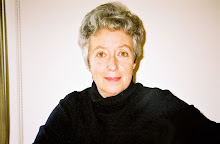 |
| Bryna Dabby of Women in Games in a 2011 interview in Vancouver. |
LaFrance writes a thoughtful piece on the problem. "Underrepresentation of women in media is one of those topics that’s so big and so multifaceted that a lot of people don’t really know how to begin to talk about it, let alone do anything to make a difference," she says, adding that saying "Journalists are simply reflecting the imbalance that exists all around them" is a poor excuse that makes it possible for nothing to change."
She has written one of the most thoughtful pieces on the subject I've ever read. She concludes that both sides of the equation have to work harder -- journalists to track down appropriate sources who are female and women being willing to be quoted. LaFrance notes a reticence among women that is less of a problem with men she contacts for interviews -- she's not the first person to notice this or wonder why it is the case. Her account is a good example of why we're still talking about this and why we need to get on with fixing the problem.


